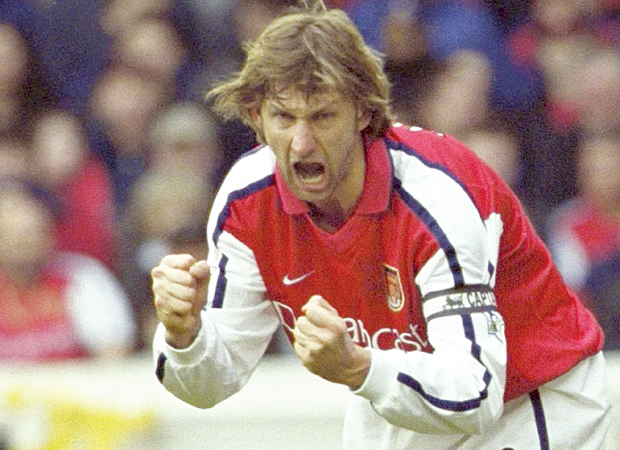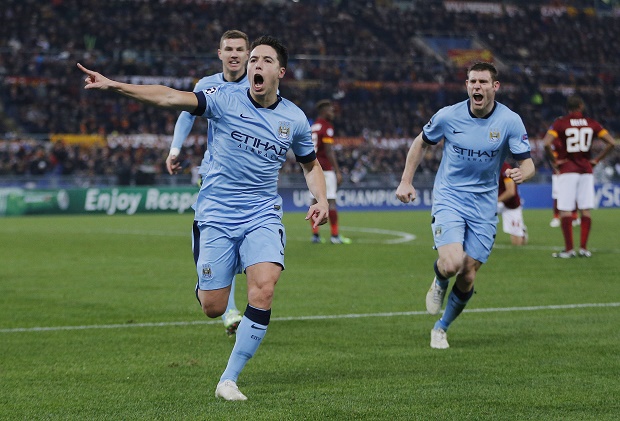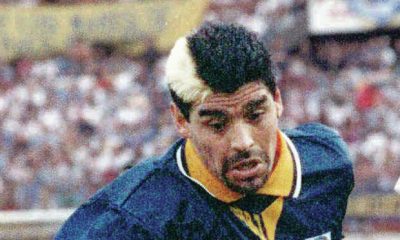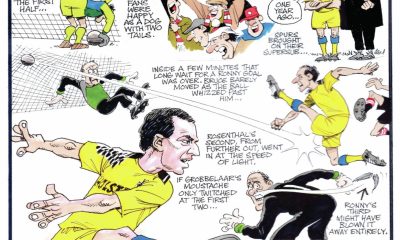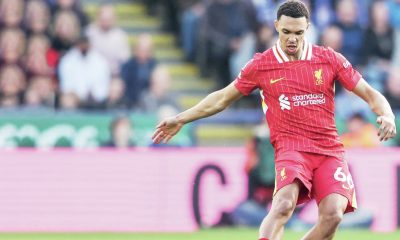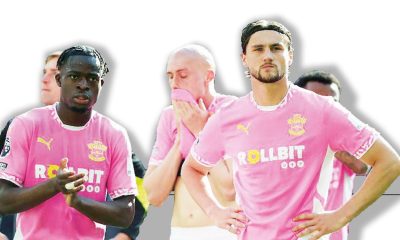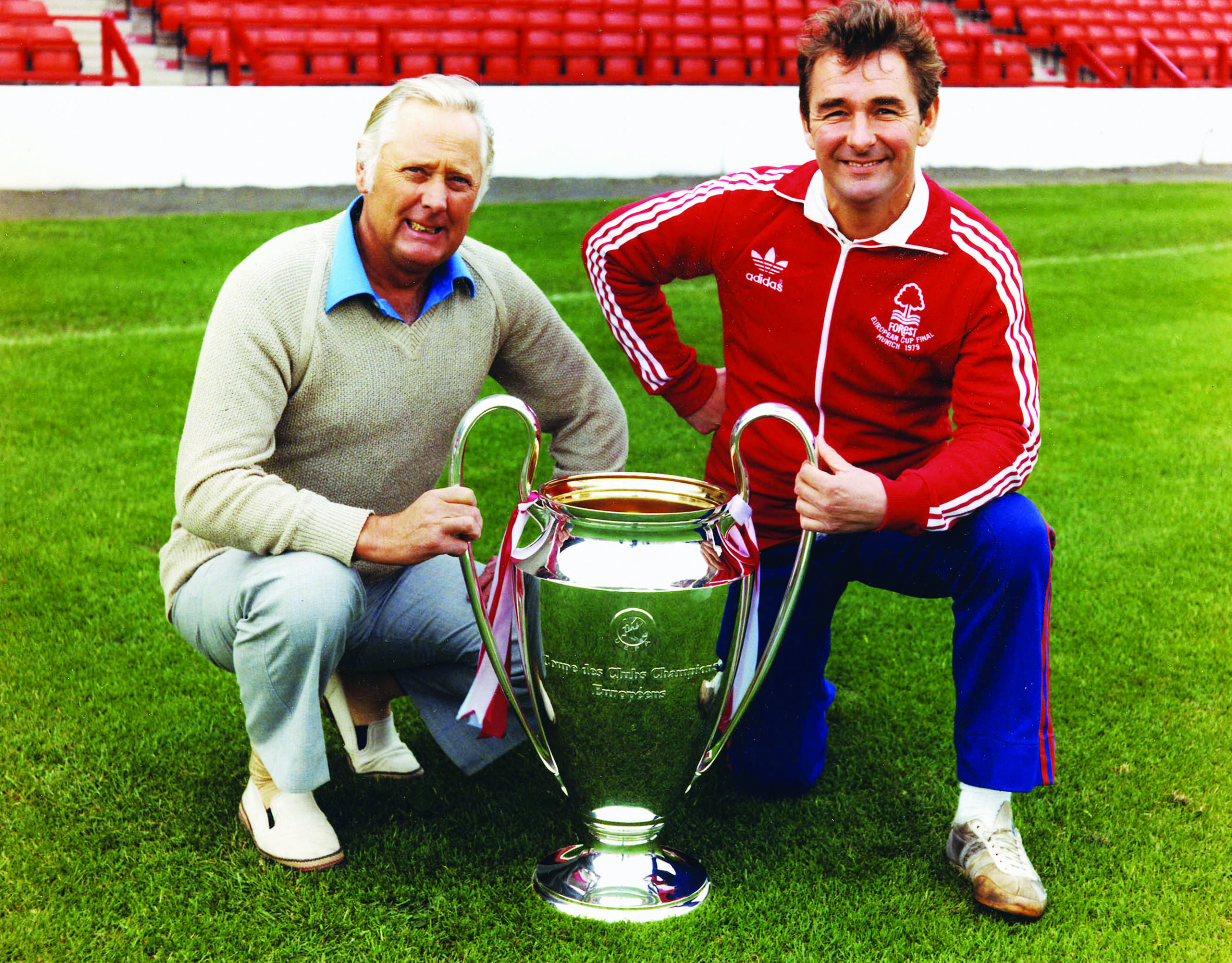
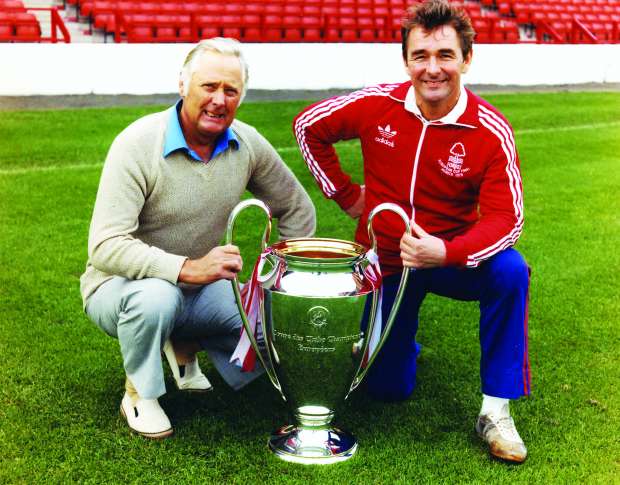
As Nottingham Forest tread water in the Championship, could you imagine them winning the Champions League (twice), the Premier League and the League Cup (twice) in the next five years?
Yet that’s effectively that Forest did under the managerial genius of Brian Clough and his sidekick Peter Taylor at the end of the 70s and start of the 80s.
Now a film about Forest’s glory days, I Believe in Miracles, is in cinemas nationwide and gives football fans the chance to relive a time when English clubs ruled Europe.
Late Tackle had a chance to view the film a while back and the combination of action clips and interviews with all the players makes for excellent entertainment.
We also caught up with two of Forest’s heroes from those unforgettable times, winger John Robertson and captain John McGovern, to reminisce.
Robertson meets up sometimes with his old team-mates for the ‘odd drink’ and the new film is sure to be a hot topic of conversation. The Scot hadn’t seen it when Late Tackle chatted with him, but is delighted it’s been made.
“Jonny Owen (director) deserves a lot of credit for recognising the story and taking it on,” he said. “Without him, I wouldn’t be sitting here doing interviews about it. Everyone who’s seen it says it’s brilliant and it’s great that people are talking about what we did 35 years later.”
No-one can argue that Robertson didn’t play a major role in Forest’s peak European moments. His run and cross set up £1m man Trevor Francis to head home the European Cup final winner against Malmo on the stroke of half-time in 1979 while he netted the winner against Hamburg the following year as Forest, incredibly, made it back-to-back titles.
“I was chuffed to set up Trevor’s winner,” he said. “In his commentary, Barry Davies said he had been waiting for me to do that all night. Malmo were doubling up on me, and it was my first opportunity to get a run at them. Give credit to Trevor, he made up a lot of ground and it was a great header.
“Scoring the winning goal is the ultimate and it doesn’t get any better. To be honest, I didn’t play particularly great in either final, but I did enough to help us to win.Fortunately, I got a few big goals in my career, but I played with great players – and that’s the bottom line.”
Robertson believes it’s virtually impossible that a club could ever repeat Forest’s feat of coming up from the second tier to conquer Europe in a few short years.
He suggests that as soon as now-Championship players start to impress or hit the heights, they are snapped up by bigger, more powerful clubs.
“In my day we could compete wages-wise with the bigger clubs, but the big clubs have got bigger and bigger – and the gap is getting wider,” he said.
“If, for example, Manchester United want to buy a Middlesbrough player, the player will be ambitious and want to go.”
Perhaps it’s all a matter of timing. Forest was the right club for Clough, bruised by his Leeds exit, at the right time. Before the big clubs got too big.
“Brian Clough was brilliant to work for – a genius. Some people said he ruled by fear, but I thought that was crap. If you are scared, you can’t perform to your best,” he said.
“I wanted his approval and when I got that my game went up 20 per cent. That was the respect I had for him and Peter Taylor.
“Peter played a big part in the recruitment of players at Forest in the early days and he was vital. They were a brilliant partnership.”
If there’s anyone better equipped to talk about what made Clough and Taylor so special it’s John McGovern.
The Scot’s career was entwined with the famous double act. He played under Clough at Hartlepool, Derby, Leeds and Forest, with Taylor in tandem for all but Clough’s ill-fated short stint at Leeds.
“They gave me my chance at Hartlepool,” recalled McGovern. “They saw something in me I hadn’t seen myself. My dad died when I was 11 and my mum didn’t know anything about football.
“At 16, I was guided by them on how to play football and I followed their advice to the letter. Many years later people would say to me ‘you just do what they say’ and I’d reply ‘do you want to see my medals?’ If that’s following someone’s instructions, then fine.
“They were exceptionally clever. I’m a big lover of history and reading about inspirational leaders, and Clough and Taylor were clever.
“Their management was 90 per cent psychology, because the basics of the game haven’t changed for years and years. People try to blind you with stats these days, but they blinded you with simplicity – be prepared and put your lot in and you will beat the opposition.
“I never worked under Alex Ferguson, but Neil Webb and Roy Keane will both tell you that Clough was a better man-manager than him. For people like them to say that tells you how good Clough was – but Peter Taylor was vital, too.
“Peter was his sounding board, his confidant, his best friend. They had different abilities – Clough was brilliant at talking to players and the media, Taylor was brilliant at picking and sourcing players. Together they were unbeatable.”
McGovern likens it to a project where two people with the same skills could do a good job, but two people with different qualities working together could do an outstanding job.
As for the difference between why Forest went on to outdo Derby’s achievements, McGovern is clear.
“Forest were slightly better in most departments,” he explained. “Forest had more creativity, more people who could get you a goal and the best keeper in the country – and they were more ruthless.”
Aside from the wisdom of the managerial duo, midfielder McGovern also credits intelligent players with Forest’s unlikely surge to the summit.
“There were players with good football minds and I’ve got a lot of respect for the intelligence of that side,” he said. “There’s respect for the first scientists to put a rocket in space. Footballers may not be noted for being academically bright, but they are academic on that green turf.
“You have a real appreciation of the people you are playing with and when I was playing with the likes of John Robertson, Peter Shilton, Viv Anderson and Tony Woodcock I would look at them and think we ain’t going to lose many games. There was that feeling of comfort like a child with a comfort blanket.”
Perhaps the modern day game with all the scrutiny it’s under doesn’t lend itself to characters, but Forest certainly had them.
“Some people are naturally quiet, some are loud. Kenny Burns was a great character, John Robertson a quieter character, Martin O’Neill quieter still.
“Martin was studying to be a lawyer and he didn’t need an agent to manage his contract – he could handle it himself. Peter Shilton was a loner as keepers sometimes tend to be, while Gary Birtles came from Non-League and went from being nobody to Roy of the Rovers.
“Myself and John O’Hare had seen what Clough and Taylor had done at Derby, so our success wasn’t quite as much of a shock to us, but it must have been incredible for the boys already at Forest. Clough and Taylor got it out of them.
“Sometimes you can let sport rule your life and become too intense, but they were aware of that. We would have the odd drink and before playing Southampton in the League Cup final in ’79 maybe we overdid it, but we won and no-one complains when you win.”
If something says how impressive Forest were, McGovern, 65, believes beating Liverpool to the First Division title in 1977-78 is a decent benchmark.
“We lost only three games that season and it was quite an achievement to overcome Liverpool at that time as they were unstoppable,” he said. “It highlights how good Clough and Taylor were – they were perfect for each other.”
Before Forest conquered Europe, Robertson admitted that winning the League Cup final in a replay against Liverpool at Old Trafford in 1978 felt really special.
“That was the first thing we won and I didn’t think we’d go on to win five or six trophies, but we kept going forward,” said the Scotland international, who scored the only goal from the penalty spot.
“I’m also really proud to have played in all the 42 games we went unbeaten. Arsenal took the record away from us, but they had a squad of about 95 players and we had 14!
“It was a smashing time and I’m thankful to have been part of the greatest period in the club’s history.
After being assistant manager to former team-mate O’Neil at Wycombe, Norwich City, Leicester City, Celtic and Aston Villa, Robertson has now broken away from the football scene – and likes to indulge in his favourite past-time, playing tennis.
“Football has been brilliant to me, but I think I’ve had my time,” said the 62-year-old. “I had great times, especially at Leicester and Celtic, but I didn’t enjoy Villa so much.Maybe I was just getting old.
“Now I play tennis three times and week and it gets the heart pumping. I love watching Roger Federer – he’s my hero. He’s the greatest tennis player there’s ever been and I like the way he plays the game. He’s got elegance and grace, and never knows when he’s beaten.”
Then again, perhaps it takes a champion to know one





